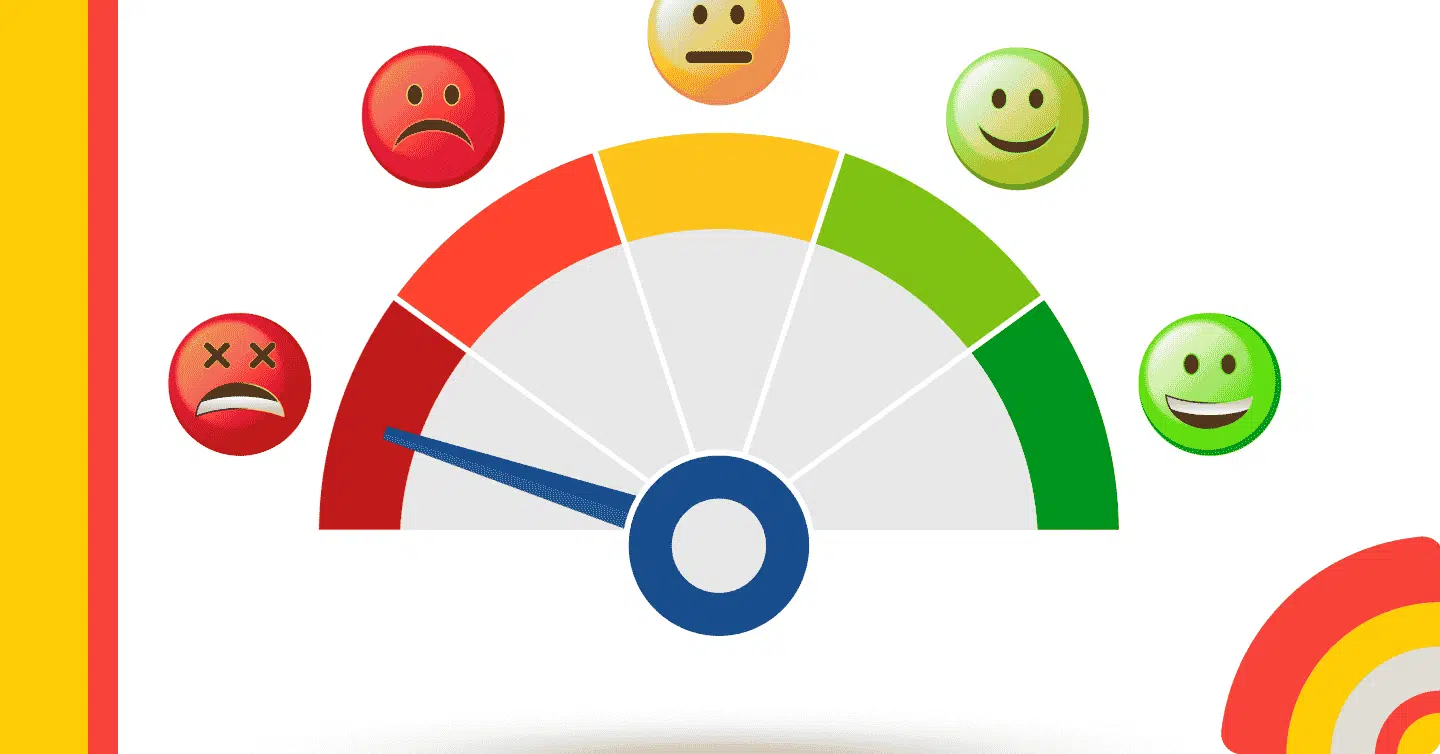How to Get a Mortgage With Bad Credit in Canada

Table of contents
Bad credit is often viewed as a significant roadblock to securing a mortgage. In reality, it’s more of a hurdle you’ll need to navigate on the way to homeownership. Even having close-to-perfect credit doesn’t always guarantee you will be approved for a mortgage.
While poor credit means you won’t likely be approved for a mortgage with an A lender, there are B and alternative or private lending solutions that can help you secure a mortgage even with bad credit. In this article, we’ll help you understand how you can work toward obtaining a mortgage in Canada despite having less-than-perfect credit.
Key Takeaways
- Your credit score is one of the main factors that mortgage lenders consider, so a better score increases your chances of approval.
- Options exist for those with bad credit, though they may be more expensive or require a larger downpayment.
- Alternative lenders include private, monoline, and credit unions, which can approve mortgages for people with bad credit.
What Is Credit and Why Does It Matter?
Credit is your financial trustworthiness, measured by a 3-digit numerical value known as a credit score. Credit scores in Canada range from 300 to 900. They are calculated based on scoring models that weigh common components, which vary based on the company providing the credit score, their data, and the calculation method used.
Your credit score represents your ability to repay borrowed money, which lenders use as an indicator of risk when considering loan applications. A good credit score opens the door to more favourable mortgage rates and terms. Meanwhile, a bad credit score can limit your options, leading to higher rates and more restrictive lending terms.
What Is “Bad” Credit When Applying for a Mortgage?
Bad or bruised credit can be a warning sign to lenders that you are unable to manage your current finances responsibly. They may then conclude that lending to you may be too risky, with a higher likelihood that you may fail to repay a mortgage. Because of this, many A lenders may deem you too high risk and, as a result, deny your mortgage application.
Reasons a Lender Would Consider Your Credit as “Bad”
Different lenders have different criteria for what they consider to be “bad” credit. However, common factors contribute to lenders deeming a credit score inadequate or “bad.”
Low Credit Score
In Canada, credit scores range from 300 to 900. While the credit scoring models may vary depending on the lender and organization that pulls your credit score, they all aim to predict the likelihood that you will continue to make timely debt repayments.
Scores below 660 are typically considered poor or bad. Scores between 660 and 724 are considered good, 725 to 759 very good, and 760+ excellent. Many lenders, particularly traditional banks, may be reluctant to approve a mortgage application from someone with a poor, bad, bruised or low credit score.
Late or Missed Payments
Your payment history plays a significant role in determining your credit score. Regularly missing or making late payments can seriously bruise your credit score, making most A lenders wary of approving you for a mortgage.
Your payment history is a complete picture of all your credit accounts, including credit cards, credit lines, loans, and secured loans such as home equity lines of credit (HELOC) and mortgages.
A Lack of Credit History
If you’re new to the world of credit or are a newcomer to Canada, you might lack a substantial credit history. This technically doesn’t mean you have bad credit; however, a lack of credit history means a lender has no ability to check how you’ve effectively handled debt to date. This absence of a credit track record makes it difficult for lenders to assess your reliability in repaying debts, potentially leading to your application being declined by A lenders.
However, as a newcomer, depending on the lender and your downpayment, you may be able to use your international credit report or letter of reference from your foreign bank to get a mortgage, with additional Canadian-sourced requirements.
High Credit Utilization
Lenders want to know how much credit you are using before approving you for more. A high credit utilization ratio can be a red flag for lenders, suggesting you might be over-leveraged or could signal financial difficulties.
Your credit utilization ratio is a percentage measure of the amount of credit you use compared to your total available credit limits. Utilization also influences your credit score, with a higher utilization ratio negatively impacting your score. It’s recommended that you keep your credit utilization at or below 30%.
Negative Events or Errors on Your Credit Report
Negative events, such as bankruptcy or collections, can stay on your credit report for several years, painting a negative picture of your financial behaviour over time. Late payments and debts sent to collections may remain on your credit report for up to 6 years, while bankruptcy may remain for up to 7 years.
Errors or discrepancies on your credit report can also inadvertently lower your credit score. This highlights the importance of regularly checking your credit score and credit report to spot errors early and correct them to avoid impacting your credit score.
Mortgages giving you a headache?
Take a breather and work with nesto experts to make it easy for you.
Where to Get a Bad Credit Mortgage
If your credit score is below the threshold to secure a mortgage with an A lender, alternative lending options are available to secure a mortgage with bad credit. Your approval may depend on putting down a much higher downpayment and paying a higher interest rate to offset the risk to the lender.
Private Lenders
Private lenders can be individuals or corporations without strict regulations. They offer mortgages accessible to those with poor or no credit history. These lenders provide non-income qualified (NIQ) financing for those who don’t qualify for A or B lending and typically have higher interest rates and shorter mortgage terms.
These mortgages are typically 3 to 6 months in length and generally have significantly higher interest rates with interest-only mortgage payments. This lending solution requires a plan and exit strategy, as the lender may decide not to renew your mortgage at the end of the term.
Monoline Lenders
Monoline lenders are financial institutions (FI) that could be publicly traded or privately held mortgage financing corporations(MFC). They solely specialize in providing secured lending solutions like mortgages. Monoline lenders can be A or B lenders or a combination of both, and each will have its own credit requirements to approve you for a mortgage. While they also cater to borrowers with good credit, some will have less stringent lending criteria, making them an attractive option for those with bad or poor credit.
Credit Unions
Credit unions are cooperative financial institutions controlled by their members. They are provincially regulated and not federally, so they have more flexibility with lending criteria than federally regulated institutions. Since credit unions are deposit-accepting institutions and not federally regulated, they do not need to adhere to the stress test requirements for all of their solutions, and mortgage approvals are often situational-based.
Risks When Getting a Bad Credit Mortgage
While getting a bad credit mortgage in Canada is risky, there are lending solutions available for those with bad credit. If you are looking for alternative lending solutions to become a homeowner, you should know the many potential risks.
Larger downpayment—Most alternative lending solutions require a 20% or more downpayment, much larger than the minimum 5% requirement for default-insured mortgages with A lenders.
Higher cost of borrowing – Most alternative lending solutions will have higher interest rates than A lenders. This takes into account the additional risk of lending money to someone with bad or bruised credit.
Shorter mortgage terms – Many alternative lenders offer mortgages with shorter terms. Since there is a risk your mortgage won’t be renewed, these should be treated as a short-term solution while you work to rebuild your credit.
Risk of foreclosure – Borrowing at higher interest rates with shorter mortgage terms can increase the risk that you become unable to repay your mortgage or extend the mortgage term. If you fall behind on payments or have difficulty finding a lender to renew your mortgage at the end of the term, you are at a higher risk of foreclosure. If the private mortgage is behind a first mortgage at a Prime or A lender, then you could end up owing more than the home value – in this event, a bad financial circumstance could worsen.
Risk to finances – If you already struggle with managing your debt and paying it off on time, taking on the additional burden of a mortgage can mean you overleverage yourself, potentially worsening your financial situation.
Steps to Getting a Bad Credit Mortgage
There is no one-size-fits-all approach to securing a mortgage if you have bad credit. However, some steps can improve your chances of getting approved.
- Work to improve your credit score and check it often. Although improving your credit score can take time, slight improvements can help lenders view you more favourably. Making consistent, timely payments, lowering your credit utilization, and managing existing credit responsibly can all help boost your credit score. Additionally, checking your credit report often can help you identify any errors, omissions or fraud that could negatively affect your score.
- Save for a larger downpayment to mitigate risk. Having a larger downpayment ready can increase your chances of mortgage approval. Since most alternative lenders will want a higher downpayment, the more you can save to put down, the better your chances of getting approved.
- Consider a co-signer or guarantor. Co-signers agree to become legally responsible for the mortgage repayments should you default. A co-signer (who goes on title as well) or a guarantor (who only goes on the mortgage) with good credit on your mortgage application can boost your chances of approval.
- Get a pre-approval or pre-qualification. Pre-approvals could give you an idea of how much the lender is willing to let you borrow, which can help you set a budget based on affordability.
- Compare rates and terms. Not all alternative lending solutions are made equal, and not all will have the same qualification requirements. Shopping around just as you would for a traditional mortgage may help you secure a lower rate or more favourable terms. Before choosing a lending solution that suits your borrowing needs, compare and understand any additional fees and the total cost of borrowing (COB).
Frequently Asked Questions
Can I get a mortgage in Canada if I have bad credit?
You can get a mortgage with bad credit in Canada. However, your options may be limited, and you may face higher interest rates and be required to provide a larger downpayment as part of the lending requirements.
What’s the lowest credit score for a mortgage?
The lowest credit score generally accepted for a mortgage in Canada will vary by lender and the amount of risk the borrower represents. However, some alternative lenders may consider applications from borrowers with scores below their typical thresholds, especially if you have extensive savings and investments outside your downpayment.
How long will a bankruptcy stay on my credit report in Canada?
Bankruptcy will typically stay on your credit report for 6 years, after which you can have it discharged and start rebuilding your credit in the 7th year.
Can I get a mortgage with no Canadian credit history?
It is possible to get a mortgage in Canada with no credit history. Many lenders have programs for newcomers with little to no Canadian credit history. You may require a co-signer or guarantor if you’re a citizen without Canadian credit. If more than 50% of the downpayment and income to support your application comes from your guarantor, the lender may require them to be a co-signer instead.
What if my partner has bad credit and I don’t?
If your partner has bad credit and you can easily qualify for a mortgage without your partner, consider not including their income on the mortgage application. They can still be added to the title for purchasing your matrimonial home, but their credit won’t impact your ability to qualify with an A lender. If you require both incomes to qualify, B or alternative lending may be the only solution to secure a mortgage with both applicants’ financial situations considered.
Final Thoughts
While getting a mortgage with bruised or bad credit in Canada may require more effort and patience, it is possible. Many struggle to qualify due to debt or mismanaged finances earlier in life.
Focus on improving your credit and building a sizeable downpayment. These 2 factors alone can put you in a better position to qualify for a mortgage with alternative lending solutions and, eventually, with A lenders. With the right mortgage strategy, you can take the steps to rebuild your credit and secure the mortgage that best suits your needs.
Ready to get started?
In just a few clicks, you can see our current rates. Then apply for your mortgage online in minutes!















